Móvil:+86-311-808-126-83
Correo electrónico:info@ydcastings.com
High-Performance Motor Housing & Engine Oil Pan Solutions
Introduction to Motor Housing Casting
The performance and longevity of electric motors across various industries hinge significantly on the quality and integrity of their structural components. Among these, the motor housing stands as a critical element, serving as the protective outer shell for internal motor components. It provides mechanical support, facilitates heat dissipation, and safeguards against environmental factors like moisture, dust, and corrosive agents. As a leading manufacturer in precision casting, YD Castings specializes in advanced motor housing solutions designed for demanding B2B applications, ensuring optimal performance and extended service life for diverse machinery.
Our expertise extends to producing highly durable and dimensionally accurate castings that meet stringent industry standards. From heavy industrial motors to specialized automotive applications such as engine oil pan, automobile oil pan, engine sump, y baffled oil pan, our products are engineered for resilience and efficiency.
Industry Trends in Motor Housing Manufacturing
The landscape of motor housing manufacturing is continually evolving, driven by advancements in material science, additive manufacturing, and the global push for electrification and energy efficiency. Key trends include:
- Lightweighting: With the rise of electric vehicles and portable industrial equipment, there's an increasing demand for lighter yet robust motor housings, often achieved through advanced aluminum alloys and optimized design. The goal is to reduce overall weight, enhance fuel efficiency (in automotive), and improve portability without compromising structural integrity or heat dissipation.
- Thermal Management Optimization: As motors become more powerful and compact, efficient heat dissipation is paramount. Innovations in fin design, material conductivity, and cooling channels within the motor housing are crucial to prevent overheating and ensure consistent performance.
- Electrification Drive: The transition to electric motors in diverse sectors, from automotive (EVs) to industrial machinery, is accelerating the demand for specialized motor housings that can accommodate new motor architectures, higher power densities, and specific environmental protection needs. This also includes specialized designs for components like the engine oil pan in hybrid systems or standalone electric drive units.
- Advanced Manufacturing Techniques: While traditional casting (die casting, gravity casting) remains dominant, there is growing interest in integrating hybrid manufacturing approaches, including localized reinforcement or advanced machining processes to achieve tighter tolerances and complex geometries.
- Sustainability and Recyclability: Manufacturers are increasingly focusing on sustainable material sourcing, reduced energy consumption in production, and the recyclability of materials used in motor housings to align with global environmental regulations and corporate social responsibility goals.
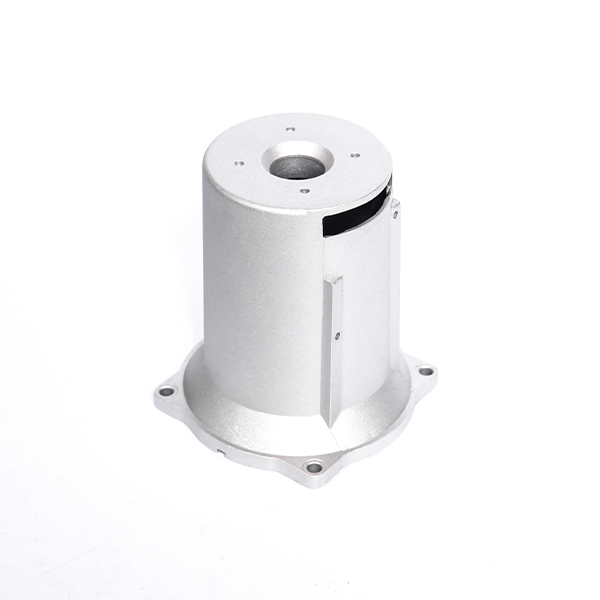
Technical Specifications and Materials
Nuestro Fundición de la carcasa del motor products are manufactured using a range of high-quality materials, meticulously selected to meet the specific demands of various applications. The choice of material and manufacturing process directly influences the housing's mechanical strength, thermal conductivity, corrosion resistance, and overall service life.
Common Materials for Motor Housings:
- Aluminum Alloys (e.g., A356, ADC12, A380): Preferred for their excellent strength-to-weight ratio, superior thermal conductivity, and good machinability. Aluminum castings are ideal for applications requiring lightweight solutions and efficient heat dissipation, such as in electric vehicle motors or portable industrial equipment.
- Cast Iron (e.g., Gray Iron, Ductile Iron): Valued for its high strength, vibration damping capabilities, and cost-effectiveness. Cast iron housings are typically used in heavy-duty industrial motors where robust construction and noise reduction are critical. They offer good wear resistance and are suitable for large motor applications.
- Magnesium Alloys: Even lighter than aluminum, magnesium alloys are chosen for ultra-lightweight applications, often in specialized aerospace or high-performance automotive components where every gram counts.
Product Specification Table: Aluminum Alloy Motor Housing Casting
| Parameter | Specification/Value |
|---|---|
| Material Grade | A356, A380, ADC12 (Customizable) |
| Manufacturing Process | High-Pressure Die Casting, Gravity Casting, Sand Casting |
| Dimension Tolerance | ISO 2768-m, CT4-CT6 for Casting, IT6-IT7 for Machining |
| Surface Finish | Ra 3.2 – Ra 6.3 (As-cast), Ra 0.8 – Ra 1.6 (Machined) |
| Hardness (Brinell) | 70-90 HB (A356-T6), 90-100 HB (A380) |
| Tensile Strength | 230-260 MPa (A356-T6), 310-330 MPa (A380) |
| Thermal Conductivity | 130-150 W/m·K (Aluminum Alloys) |
| Typical Weight Range | 0.5 kg – 50 kg (depending on size and complexity) |
| Testing Standards | ISO 9001, IATF 16949, ASTM B108 (for A356), ASTM B85 (for A380), NDT (X-ray, MPI) |
| Service Life Expectancy | 10-20+ years under specified operating conditions |
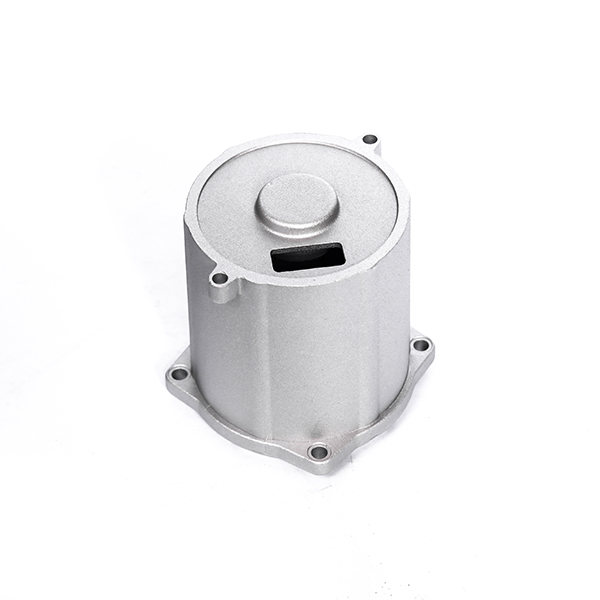
Manufacturing Process Flow for Motor Housing Casting
Our manufacturing process for motor housing components is a meticulously controlled sequence designed to ensure the highest quality, dimensional accuracy, and material integrity. We combine advanced casting techniques with precision machining and rigorous quality control at every stage.
1. Design & Tooling
CAD/CAM design, simulation (DFM, mold flow analysis), and precise mold/die creation (CNC machining of steel dies for die casting, pattern making for sand/gravity casting).
2. Material Preparation
Selection of high-grade raw aluminum or iron alloys. Melting and degassing processes to achieve optimal molten metal quality and composition, often utilizing spectrometer analysis.
3. Casting
Die Casting: Molten metal injected under high pressure into steel molds for complex, high-volume parts with excellent surface finish. Fundición por gravedad: Pouring molten metal into permanent molds by gravity for denser, less porous parts. Sand Casting: For larger, more intricate components, molten metal poured into sand molds.
4. Trimming & Heat Treatment
Removal of gates, risers, and flash. Heat treatment (e.g., T6 for aluminum) to enhance mechanical properties such as tensile strength and hardness, improving fatigue resistance.
5. CNC Machining
Precision CNC machining to achieve tight dimensional tolerances, critical bore alignments, and complex features required for motor assembly (e.g., bearing seats, mounting faces).
6. Surface Treatment & Coating
Options include shot blasting, powder coating, anodizing, or E-coating for enhanced corrosion resistance, aesthetics, and electrical insulation properties.
7. Quality Inspection
Comprehensive inspection including CMM measurements, spectral analysis, mechanical testing (tensile, hardness), X-ray for internal defects, and visual inspection. Adherence to ISO 9001 and IATF 16949 standards.
8. Assembly & Packaging
Careful assembly of specific components if required, followed by protective packaging to prevent damage during transit and storage.
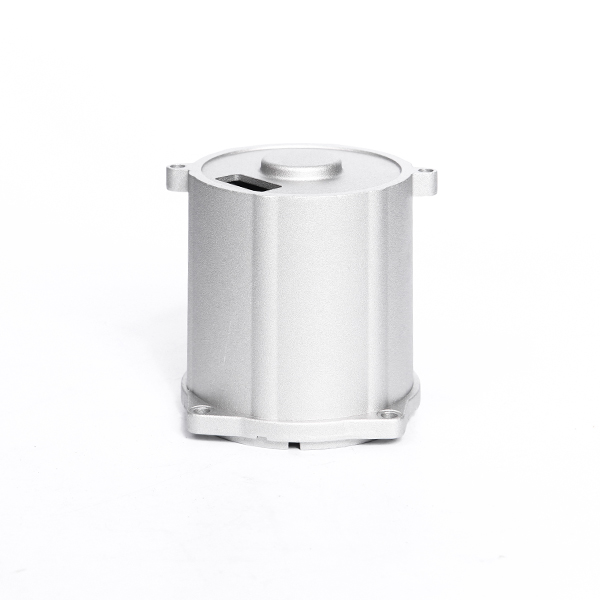
Application Scenarios Across Industries
Motor housing castings are integral to a vast array of industries, providing essential protection and structural integrity to electric motors operating in diverse and often harsh environments.
- Automotive Industry: Beyond traditional internal combustion engine components like the automobile oil pan or engine sump, modern applications include housings for electric vehicle (EV) drive motors, hybrid vehicle motor-generators, and auxiliary motors (e.g., power steering, cooling pumps). The focus here is on lightweighting for efficiency and robust designs for vibration and impact resistance. Our expertise extends to high-performance components like the baffled oil pan, crucial for maintaining oil supply during aggressive maneuvers in racing or off-road conditions.
- Industrial Machinery: In sectors like metallurgy, mining, and manufacturing, motors drive conveyors, pumps, fans, and robotic systems. Their housings must withstand heavy loads, abrasive dust, and high temperatures. Advantages include excellent corrosion resistance from specialized coatings and enhanced durability for extended service life in demanding operational cycles.
- Water Supply & Drainage: Pumps and valves in municipal water treatment plants and wastewater facilities rely on motors that operate in humid, potentially corrosive environments. Cast aluminum or specially treated cast iron housings provide the necessary protection against moisture and chemical exposure, ensuring reliable long-term operation and reducing maintenance costs.
- Petrochemical Industry: Motors in refineries and chemical plants often operate in explosive atmospheres or corrosive chemical environments. Housings must be explosion-proof (ATEX certified) and highly resistant to chemical attack, requiring specific material grades and surface treatments to ensure safety and operational integrity.
- Renewable Energy: Wind turbines, solar trackers, and hydroelectric generators utilize large electric motors and generators. Their housings must be exceptionally robust, resistant to extreme weather conditions, and designed for minimal maintenance over decades of operation.
- Aerospace and Defense: For mission-critical systems, motor housings require ultimate precision, lightweight construction, and reliability under extreme thermal and mechanical stress.
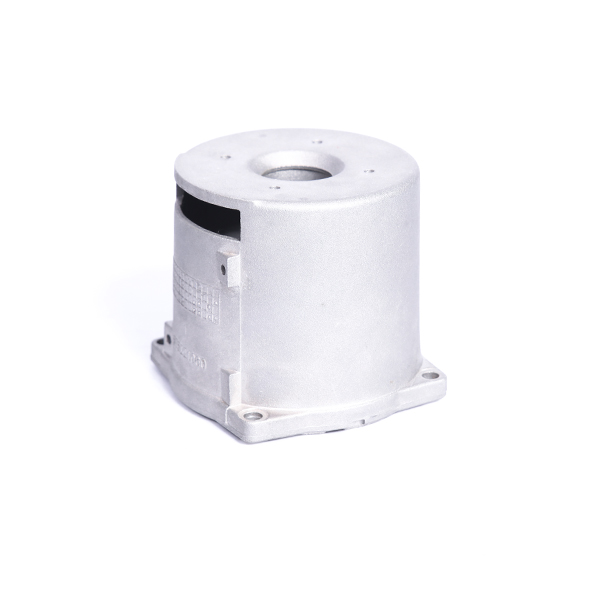
Technical Advantages of YD Castings' Motor Housing Solutions
YD Castings leverages advanced manufacturing techniques and deep engineering expertise to deliver motor housing solutions that offer distinct technical advantages:
- Superior Thermal Management: Our aluminum alloy housings are engineered with optimized fin designs and internal geometries to maximize heat dissipation, critical for high-efficiency motors. This prevents thermal runaway, extends insulation life, and maintains consistent motor performance, directly contributing to energy saving.
- Exceptional Dimensional Accuracy: Utilizing advanced CNC machining and strict quality control, we achieve tight tolerances (e.g., IT6-IT7 for critical dimensions) for bearing seats and mounting interfaces. This precision ensures seamless assembly, reduces vibration, and enhances overall motor efficiency and reliability.
- High Strength-to-Weight Ratio: Through precise control of alloy composition and heat treatment processes (e.g., T6 for A356 aluminum), our castings deliver excellent mechanical properties. This allows for lightweight designs without compromising structural integrity, crucial for applications where mass reduction is key.
- Advanced Corrosion Resistance: Depending on the application, we offer various surface treatments such as anodizing, powder coating, or E-coating, providing robust protection against environmental corrosion, chemicals, and harsh operating conditions. This significantly extends the service life, particularly in outdoor, marine, or chemical processing environments.
- Vibration Damping Characteristics: For specific applications, especially with cast iron housings, the inherent material properties contribute to superior vibration damping, reducing noise levels and minimizing wear on internal motor components.
- Design Flexibility and Integration: Our casting processes allow for the creation of complex geometries, enabling the integration of multiple functions into a single motor housing part. This can include cooling channels, mounting points, and electrical conduit entries, reducing assembly time and cost.
Vendor Comparison: Why Choose YD Castings?
In a competitive market for precision castings, YD Castings differentiates itself through a combination of technological prowess, adherence to global standards, and a customer-centric approach.
Key Differentiators:
- Comprehensive Engineering Support: From DFM (Design for Manufacturability) analysis to material selection and prototyping, our engineering team collaborates closely with clients to optimize designs for performance and cost-effectiveness.
- Advanced Manufacturing Capabilities: Our facilities are equipped with state-of-the-art die casting machines, gravity casting lines, and multi-axis CNC machining centers, ensuring high precision and repeatability across all production volumes.
- Rigorous Quality Assurance: We maintain stringent quality management systems, certified to ISO 9001 and IATF 16949 (for automotive sector clients). Our quality checks include Spectrometer, CMM, X-ray, Ultrasonic, MPI, and various mechanical tests.
- Years of Experience & Authoritativeness: With over 15 years in the casting industry, YD Castings has established a reputation for reliability and technical excellence, serving a global clientele that includes major players in petrochemical, automotive, and industrial sectors.
- Commitment to Sustainability: We implement eco-friendly practices throughout our operations, focusing on waste reduction, energy efficiency, and responsible material sourcing.
Vendor Comparison Table (Illustrative):
| Feature | YD Castings | Typical Competitor A | Typical Competitor B |
|---|---|---|---|
| Engineering Support (DFM) | Excellent (Proactive, Collaborative) | Good (Reactive) | Basic (Limited) |
| Quality Certifications | ISO 9001, IATF 16949 | ISO 9001 | Basic QC |
| Precision Machining Capabilities | High (Multi-axis CNC, tight tolerances) | Medium (Standard CNC) | Limited (Outsourced) |
| Material Selection & Expertise | Broad (Al, Fe, Mg), Alloy Optimization | Moderate (Standard Alloys) | Limited (Few standard types) |
| Lead Time Flexibility | Excellent (Optimized scheduling, agile production) | Good (Standard lead times) | Moderate (Longer, less flexible) |
| Post-Casting Treatments | Extensive (Heat treat, multiple coatings) | Moderate (Basic coatings) | Limited (As-cast only) |
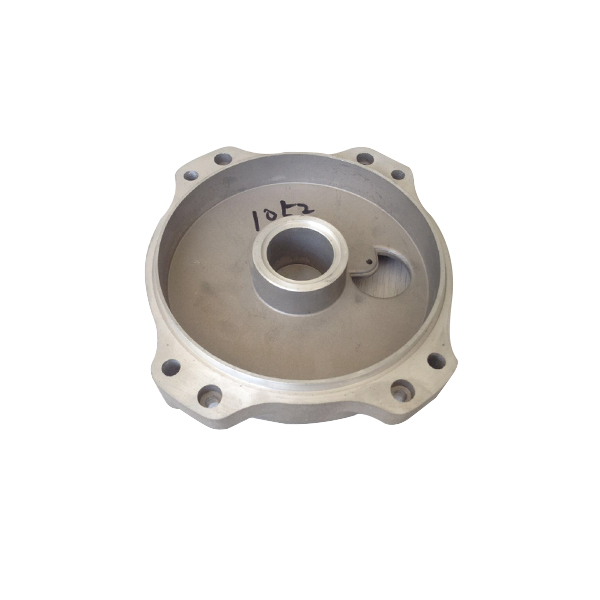
Customized Solutions
Recognizing that off-the-shelf solutions rarely meet the precise demands of every B2B application, YD Castings excels in providing highly customized motor housing solutions. Our approach begins with a deep understanding of your specific project requirements, operational environment, and performance metrics.
- Design Optimization: We work with your engineering team from initial concept to final production, offering DFM (Design for Manufacturability) analysis, FEA (Finite Element Analysis) for stress and thermal performance, and mold flow simulations to ensure optimal design, material usage, and production efficiency.
- Material Tailoring: Whether it's a specific aluminum alloy for lightweighting and thermal performance, or a particular grade of cast iron for robustness and vibration dampening, we select and sometimes custom-blend materials to meet precise mechanical and environmental specifications.
- Integrated Features: Custom solutions often involve integrating complex features directly into the casting, such as unique mounting points, specialized cable entries, integrated cooling fins, or specific sensor locations, minimizing post-processing and assembly costs.
- Surface Finish and Coatings: Beyond standard treatments, we can apply specialized coatings for extreme corrosion resistance, electrical insulation, or aesthetic requirements, ensuring the motor housing performs optimally in its intended environment.
- Prototyping and Rapid Iteration: Our capabilities include rapid prototyping to validate designs and material choices quickly, allowing for agile development cycles and faster time-to-market for our clients.
Application Case Studies
Our track record of success is built on delivering high-performance, reliable casting solutions for diverse and challenging applications.
Case Study 1: High-Performance EV Motor Housing
A leading electric vehicle manufacturer approached us for a lightweight yet extremely robust motor housing for their next-generation EV drive units. The challenge was to achieve superior thermal management and structural rigidity while significantly reducing weight.
- Solution: We utilized A356 aluminum alloy with a T6 heat treatment via gravity casting, followed by multi-axis CNC machining. Our engineers optimized the internal fin structure and external geometry through extensive thermal simulations.
- Results: The custom motor housing achieved a 20% weight reduction compared to the previous design, a 15% improvement in heat dissipation efficiency, and met all NVH (Noise, Vibration, Harshness) requirements. Customer feedback highlighted improved motor efficiency and extended battery range due to the lighter component.
Case Study 2: Industrial Pump Motor Housing for Chemical Processing
A client in the petrochemical industry required motor housings for pumps handling corrosive chemicals. The primary concerns were long-term corrosion resistance and durability in a harsh, continuously operating environment.
- Solution: We selected a specialized cast iron alloy known for its chemical resistance and applied a multi-layer epoxy powder coating. The design incorporated robust sealing features and simplified mounting points for ease of maintenance.
- Results: The specialized motor housing significantly extended the service life of the pump motors, reducing costly downtime and replacement cycles. The client reported a 30% reduction in maintenance costs related to housing failures over a three-year period.
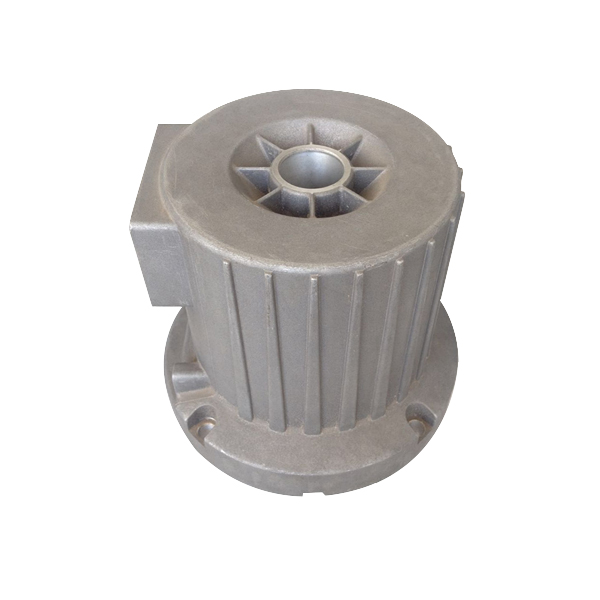
Frequently Asked Questions (FAQ)
Q1: What is the typical lead time for custom motor housing castings?
A1: Lead times vary significantly based on complexity, material, and order volume. For new projects involving tooling and initial samples, it typically ranges from 8-12 weeks. Subsequent production orders for established designs can be fulfilled within 4-6 weeks, depending on our production schedule and material availability. We prioritize transparent communication regarding lead times.
Q2: What quality control measures does YD Castings implement?
A2: We adhere to strict ISO 9001 and IATF 16949 quality management systems. Our process includes DFM analysis, material spectrometer analysis, CMM dimensional inspection, X-ray flaw detection, ultrasonic testing, magnetic particle inspection, and mechanical property testing (tensile strength, hardness) to ensure every motor housing meets specified standards.
Q3: Can YD Castings assist with design and engineering for new projects?
A3: Absolutely. Our experienced engineering team offers comprehensive design and engineering support, including initial concept validation, DFM, FEA, mold flow analysis, and prototyping services. We collaborate closely with clients to optimize designs for manufacturability, performance, and cost-efficiency.
Q4: What types of post-casting treatments are available?
A4: We offer a wide range of post-casting treatments including various heat treatments (e.g., T4, T6), shot blasting, CNC machining for precision tolerances, powder coating, anodizing, E-coating, and other specialized surface finishes to enhance corrosion resistance, wear properties, and aesthetic appearance.

Warranty and Customer Support
YD Castings stands behind the quality and performance of every motor housing we produce. We offer a standard warranty against manufacturing defects, with specific terms outlined in our contractual agreements. Our commitment extends beyond delivery, ensuring long-term satisfaction and operational reliability for our clients.
After-Sales Support:
Our dedicated customer support team is available to assist with any inquiries, technical questions, or challenges that may arise post-purchase. We provide:
- Prompt response to technical support requests.
- Assistance with product integration and assembly guidance.
- Spare parts availability for specific components if required.
- Detailed documentation and certifications upon request.
References
- ASTM International. "Standard Specification for Aluminum-Alloy Sand Castings." ASTM B26/B26M.
- ISO (International Organization for Standardization). "Quality management systems — Requirements." ISO 9001:2015.
- SAE International. "Quality Management System Requirements for Automotive Production and Relevant Service Parts Organizations." IATF 16949:2016.
- ASM International. "ASM Handbook, Volume 15: Casting."
- Kalpakjian, S., & Schmid, S. R. (2014). Manufacturing engineering and technology. Pearson Education.
-
Materials Used in Manufacturing Cap End Pipe FittingsNoticiasNov.24,2025
-
Material Properties of CF8M CastingNoticiasNov.24,2025
-
How to Inspect Pump Cap Ends for DamageNoticiasNov.21,2025
-
Backward Curved Impeller – Efficient Airflow Solutions for Industry | YD CastingsNoticiasNov.21,2025
-
Automobile Water Pump - Efficient, Quiet, Durable & ElectricNoticiasNov.21,2025
-
Impeller for Pumps – High-Efficiency, Durable, OEM-ReadyNoticiasNov.21,2025
High-Performance Motor Housing & Engine Oil Pan Solutions
Introduction to Motor Housing Casting
The performance and longevity of electric motors across various industries hinge significantly on the quality and integrity of their structural components. Among these, the motor housing stands as a critical element, serving as the protective outer shell for internal motor components. It provides mechanical support, facilitates heat dissipation, and safeguards against environmental factors like moisture, dust, and corrosive agents. As a leading manufacturer in precision casting, YD Castings specializes in advanced motor housing solutions designed for demanding B2B applications, ensuring optimal performance and extended service life for diverse machinery.
Our expertise extends to producing highly durable and dimensionally accurate castings that meet stringent industry standards. From heavy industrial motors to specialized automotive applications such as engine oil pan, automobile oil pan, engine sump, y baffled oil pan, our products are engineered for resilience and efficiency.
Industry Trends in Motor Housing Manufacturing
The landscape of motor housing manufacturing is continually evolving, driven by advancements in material science, additive manufacturing, and the global push for electrification and energy efficiency. Key trends include:
- Lightweighting: With the rise of electric vehicles and portable industrial equipment, there's an increasing demand for lighter yet robust motor housings, often achieved through advanced aluminum alloys and optimized design. The goal is to reduce overall weight, enhance fuel efficiency (in automotive), and improve portability without compromising structural integrity or heat dissipation.
- Thermal Management Optimization: As motors become more powerful and compact, efficient heat dissipation is paramount. Innovations in fin design, material conductivity, and cooling channels within the motor housing are crucial to prevent overheating and ensure consistent performance.
- Electrification Drive: The transition to electric motors in diverse sectors, from automotive (EVs) to industrial machinery, is accelerating the demand for specialized motor housings that can accommodate new motor architectures, higher power densities, and specific environmental protection needs. This also includes specialized designs for components like the engine oil pan in hybrid systems or standalone electric drive units.
- Advanced Manufacturing Techniques: While traditional casting (die casting, gravity casting) remains dominant, there is growing interest in integrating hybrid manufacturing approaches, including localized reinforcement or advanced machining processes to achieve tighter tolerances and complex geometries.
- Sustainability and Recyclability: Manufacturers are increasingly focusing on sustainable material sourcing, reduced energy consumption in production, and the recyclability of materials used in motor housings to align with global environmental regulations and corporate social responsibility goals.

Technical Specifications and Materials
Nuestro Fundición de la carcasa del motor products are manufactured using a range of high-quality materials, meticulously selected to meet the specific demands of various applications. The choice of material and manufacturing process directly influences the housing's mechanical strength, thermal conductivity, corrosion resistance, and overall service life.
Common Materials for Motor Housings:
- Aluminum Alloys (e.g., A356, ADC12, A380): Preferred for their excellent strength-to-weight ratio, superior thermal conductivity, and good machinability. Aluminum castings are ideal for applications requiring lightweight solutions and efficient heat dissipation, such as in electric vehicle motors or portable industrial equipment.
- Cast Iron (e.g., Gray Iron, Ductile Iron): Valued for its high strength, vibration damping capabilities, and cost-effectiveness. Cast iron housings are typically used in heavy-duty industrial motors where robust construction and noise reduction are critical. They offer good wear resistance and are suitable for large motor applications.
- Magnesium Alloys: Even lighter than aluminum, magnesium alloys are chosen for ultra-lightweight applications, often in specialized aerospace or high-performance automotive components where every gram counts.
Product Specification Table: Aluminum Alloy Motor Housing Casting
| Parameter | Specification/Value |
|---|---|
| Material Grade | A356, A380, ADC12 (Customizable) |
| Manufacturing Process | High-Pressure Die Casting, Gravity Casting, Sand Casting |
| Dimension Tolerance | ISO 2768-m, CT4-CT6 for Casting, IT6-IT7 for Machining |
| Surface Finish | Ra 3.2 – Ra 6.3 (As-cast), Ra 0.8 – Ra 1.6 (Machined) |
| Hardness (Brinell) | 70-90 HB (A356-T6), 90-100 HB (A380) |
| Tensile Strength | 230-260 MPa (A356-T6), 310-330 MPa (A380) |
| Thermal Conductivity | 130-150 W/m·K (Aluminum Alloys) |
| Typical Weight Range | 0.5 kg – 50 kg (depending on size and complexity) |
| Testing Standards | ISO 9001, IATF 16949, ASTM B108 (for A356), ASTM B85 (for A380), NDT (X-ray, MPI) |
| Service Life Expectancy | 10-20+ years under specified operating conditions |

Manufacturing Process Flow for Motor Housing Casting
Our manufacturing process for motor housing components is a meticulously controlled sequence designed to ensure the highest quality, dimensional accuracy, and material integrity. We combine advanced casting techniques with precision machining and rigorous quality control at every stage.
1. Design & Tooling
CAD/CAM design, simulation (DFM, mold flow analysis), and precise mold/die creation (CNC machining of steel dies for die casting, pattern making for sand/gravity casting).
2. Material Preparation
Selection of high-grade raw aluminum or iron alloys. Melting and degassing processes to achieve optimal molten metal quality and composition, often utilizing spectrometer analysis.
3. Casting
Die Casting: Molten metal injected under high pressure into steel molds for complex, high-volume parts with excellent surface finish. Fundición por gravedad: Pouring molten metal into permanent molds by gravity for denser, less porous parts. Sand Casting: For larger, more intricate components, molten metal poured into sand molds.
4. Trimming & Heat Treatment
Removal of gates, risers, and flash. Heat treatment (e.g., T6 for aluminum) to enhance mechanical properties such as tensile strength and hardness, improving fatigue resistance.
5. CNC Machining
Precision CNC machining to achieve tight dimensional tolerances, critical bore alignments, and complex features required for motor assembly (e.g., bearing seats, mounting faces).
6. Surface Treatment & Coating
Options include shot blasting, powder coating, anodizing, or E-coating for enhanced corrosion resistance, aesthetics, and electrical insulation properties.
7. Quality Inspection
Comprehensive inspection including CMM measurements, spectral analysis, mechanical testing (tensile, hardness), X-ray for internal defects, and visual inspection. Adherence to ISO 9001 and IATF 16949 standards.
8. Assembly & Packaging
Careful assembly of specific components if required, followed by protective packaging to prevent damage during transit and storage.

Application Scenarios Across Industries
Motor housing castings are integral to a vast array of industries, providing essential protection and structural integrity to electric motors operating in diverse and often harsh environments.
- Automotive Industry: Beyond traditional internal combustion engine components like the automobile oil pan or engine sump, modern applications include housings for electric vehicle (EV) drive motors, hybrid vehicle motor-generators, and auxiliary motors (e.g., power steering, cooling pumps). The focus here is on lightweighting for efficiency and robust designs for vibration and impact resistance. Our expertise extends to high-performance components like the baffled oil pan, crucial for maintaining oil supply during aggressive maneuvers in racing or off-road conditions.
- Industrial Machinery: In sectors like metallurgy, mining, and manufacturing, motors drive conveyors, pumps, fans, and robotic systems. Their housings must withstand heavy loads, abrasive dust, and high temperatures. Advantages include excellent corrosion resistance from specialized coatings and enhanced durability for extended service life in demanding operational cycles.
- Water Supply & Drainage: Pumps and valves in municipal water treatment plants and wastewater facilities rely on motors that operate in humid, potentially corrosive environments. Cast aluminum or specially treated cast iron housings provide the necessary protection against moisture and chemical exposure, ensuring reliable long-term operation and reducing maintenance costs.
- Petrochemical Industry: Motors in refineries and chemical plants often operate in explosive atmospheres or corrosive chemical environments. Housings must be explosion-proof (ATEX certified) and highly resistant to chemical attack, requiring specific material grades and surface treatments to ensure safety and operational integrity.
- Renewable Energy: Wind turbines, solar trackers, and hydroelectric generators utilize large electric motors and generators. Their housings must be exceptionally robust, resistant to extreme weather conditions, and designed for minimal maintenance over decades of operation.
- Aerospace and Defense: For mission-critical systems, motor housings require ultimate precision, lightweight construction, and reliability under extreme thermal and mechanical stress.

Technical Advantages of YD Castings' Motor Housing Solutions
YD Castings leverages advanced manufacturing techniques and deep engineering expertise to deliver motor housing solutions that offer distinct technical advantages:
- Superior Thermal Management: Our aluminum alloy housings are engineered with optimized fin designs and internal geometries to maximize heat dissipation, critical for high-efficiency motors. This prevents thermal runaway, extends insulation life, and maintains consistent motor performance, directly contributing to energy saving.
- Exceptional Dimensional Accuracy: Utilizing advanced CNC machining and strict quality control, we achieve tight tolerances (e.g., IT6-IT7 for critical dimensions) for bearing seats and mounting interfaces. This precision ensures seamless assembly, reduces vibration, and enhances overall motor efficiency and reliability.
- High Strength-to-Weight Ratio: Through precise control of alloy composition and heat treatment processes (e.g., T6 for A356 aluminum), our castings deliver excellent mechanical properties. This allows for lightweight designs without compromising structural integrity, crucial for applications where mass reduction is key.
- Advanced Corrosion Resistance: Depending on the application, we offer various surface treatments such as anodizing, powder coating, or E-coating, providing robust protection against environmental corrosion, chemicals, and harsh operating conditions. This significantly extends the service life, particularly in outdoor, marine, or chemical processing environments.
- Vibration Damping Characteristics: For specific applications, especially with cast iron housings, the inherent material properties contribute to superior vibration damping, reducing noise levels and minimizing wear on internal motor components.
- Design Flexibility and Integration: Our casting processes allow for the creation of complex geometries, enabling the integration of multiple functions into a single motor housing part. This can include cooling channels, mounting points, and electrical conduit entries, reducing assembly time and cost.
Vendor Comparison: Why Choose YD Castings?
In a competitive market for precision castings, YD Castings differentiates itself through a combination of technological prowess, adherence to global standards, and a customer-centric approach.
Key Differentiators:
- Comprehensive Engineering Support: From DFM (Design for Manufacturability) analysis to material selection and prototyping, our engineering team collaborates closely with clients to optimize designs for performance and cost-effectiveness.
- Advanced Manufacturing Capabilities: Our facilities are equipped with state-of-the-art die casting machines, gravity casting lines, and multi-axis CNC machining centers, ensuring high precision and repeatability across all production volumes.
- Rigorous Quality Assurance: We maintain stringent quality management systems, certified to ISO 9001 and IATF 16949 (for automotive sector clients). Our quality checks include Spectrometer, CMM, X-ray, Ultrasonic, MPI, and various mechanical tests.
- Years of Experience & Authoritativeness: With over 15 years in the casting industry, YD Castings has established a reputation for reliability and technical excellence, serving a global clientele that includes major players in petrochemical, automotive, and industrial sectors.
- Commitment to Sustainability: We implement eco-friendly practices throughout our operations, focusing on waste reduction, energy efficiency, and responsible material sourcing.
Vendor Comparison Table (Illustrative):
| Feature | YD Castings | Typical Competitor A | Typical Competitor B |
|---|---|---|---|
| Engineering Support (DFM) | Excellent (Proactive, Collaborative) | Good (Reactive) | Basic (Limited) |
| Quality Certifications | ISO 9001, IATF 16949 | ISO 9001 | Basic QC |
| Precision Machining Capabilities | High (Multi-axis CNC, tight tolerances) | Medium (Standard CNC) | Limited (Outsourced) |
| Material Selection & Expertise | Broad (Al, Fe, Mg), Alloy Optimization | Moderate (Standard Alloys) | Limited (Few standard types) |
| Lead Time Flexibility | Excellent (Optimized scheduling, agile production) | Good (Standard lead times) | Moderate (Longer, less flexible) |
| Post-Casting Treatments | Extensive (Heat treat, multiple coatings) | Moderate (Basic coatings) | Limited (As-cast only) |

Customized Solutions
Recognizing that off-the-shelf solutions rarely meet the precise demands of every B2B application, YD Castings excels in providing highly customized motor housing solutions. Our approach begins with a deep understanding of your specific project requirements, operational environment, and performance metrics.
- Design Optimization: We work with your engineering team from initial concept to final production, offering DFM (Design for Manufacturability) analysis, FEA (Finite Element Analysis) for stress and thermal performance, and mold flow simulations to ensure optimal design, material usage, and production efficiency.
- Material Tailoring: Whether it's a specific aluminum alloy for lightweighting and thermal performance, or a particular grade of cast iron for robustness and vibration dampening, we select and sometimes custom-blend materials to meet precise mechanical and environmental specifications.
- Integrated Features: Custom solutions often involve integrating complex features directly into the casting, such as unique mounting points, specialized cable entries, integrated cooling fins, or specific sensor locations, minimizing post-processing and assembly costs.
- Surface Finish and Coatings: Beyond standard treatments, we can apply specialized coatings for extreme corrosion resistance, electrical insulation, or aesthetic requirements, ensuring the motor housing performs optimally in its intended environment.
- Prototyping and Rapid Iteration: Our capabilities include rapid prototyping to validate designs and material choices quickly, allowing for agile development cycles and faster time-to-market for our clients.
Application Case Studies
Our track record of success is built on delivering high-performance, reliable casting solutions for diverse and challenging applications.
Case Study 1: High-Performance EV Motor Housing
A leading electric vehicle manufacturer approached us for a lightweight yet extremely robust motor housing for their next-generation EV drive units. The challenge was to achieve superior thermal management and structural rigidity while significantly reducing weight.
- Solution: We utilized A356 aluminum alloy with a T6 heat treatment via gravity casting, followed by multi-axis CNC machining. Our engineers optimized the internal fin structure and external geometry through extensive thermal simulations.
- Results: The custom motor housing achieved a 20% weight reduction compared to the previous design, a 15% improvement in heat dissipation efficiency, and met all NVH (Noise, Vibration, Harshness) requirements. Customer feedback highlighted improved motor efficiency and extended battery range due to the lighter component.
Case Study 2: Industrial Pump Motor Housing for Chemical Processing
A client in the petrochemical industry required motor housings for pumps handling corrosive chemicals. The primary concerns were long-term corrosion resistance and durability in a harsh, continuously operating environment.
- Solution: We selected a specialized cast iron alloy known for its chemical resistance and applied a multi-layer epoxy powder coating. The design incorporated robust sealing features and simplified mounting points for ease of maintenance.
- Results: The specialized motor housing significantly extended the service life of the pump motors, reducing costly downtime and replacement cycles. The client reported a 30% reduction in maintenance costs related to housing failures over a three-year period.

Frequently Asked Questions (FAQ)
Q1: What is the typical lead time for custom motor housing castings?
A1: Lead times vary significantly based on complexity, material, and order volume. For new projects involving tooling and initial samples, it typically ranges from 8-12 weeks. Subsequent production orders for established designs can be fulfilled within 4-6 weeks, depending on our production schedule and material availability. We prioritize transparent communication regarding lead times.
Q2: What quality control measures does YD Castings implement?
A2: We adhere to strict ISO 9001 and IATF 16949 quality management systems. Our process includes DFM analysis, material spectrometer analysis, CMM dimensional inspection, X-ray flaw detection, ultrasonic testing, magnetic particle inspection, and mechanical property testing (tensile strength, hardness) to ensure every motor housing meets specified standards.
Q3: Can YD Castings assist with design and engineering for new projects?
A3: Absolutely. Our experienced engineering team offers comprehensive design and engineering support, including initial concept validation, DFM, FEA, mold flow analysis, and prototyping services. We collaborate closely with clients to optimize designs for manufacturability, performance, and cost-efficiency.
Q4: What types of post-casting treatments are available?
A4: We offer a wide range of post-casting treatments including various heat treatments (e.g., T4, T6), shot blasting, CNC machining for precision tolerances, powder coating, anodizing, E-coating, and other specialized surface finishes to enhance corrosion resistance, wear properties, and aesthetic appearance.

Warranty and Customer Support
YD Castings stands behind the quality and performance of every motor housing we produce. We offer a standard warranty against manufacturing defects, with specific terms outlined in our contractual agreements. Our commitment extends beyond delivery, ensuring long-term satisfaction and operational reliability for our clients.
After-Sales Support:
Our dedicated customer support team is available to assist with any inquiries, technical questions, or challenges that may arise post-purchase. We provide:
- Prompt response to technical support requests.
- Assistance with product integration and assembly guidance.
- Spare parts availability for specific components if required.
- Detailed documentation and certifications upon request.
References
- ASTM International. "Standard Specification for Aluminum-Alloy Sand Castings." ASTM B26/B26M.
- ISO (International Organization for Standardization). "Quality management systems — Requirements." ISO 9001:2015.
- SAE International. "Quality Management System Requirements for Automotive Production and Relevant Service Parts Organizations." IATF 16949:2016.
- ASM International. "ASM Handbook, Volume 15: Casting."
- Kalpakjian, S., & Schmid, S. R. (2014). Manufacturing engineering and technology. Pearson Education.
-
Materials Used in Manufacturing Cap End Pipe FittingsNoticiasNov.24,2025
-
Material Properties of CF8M CastingNoticiasNov.24,2025
-
How to Inspect Pump Cap Ends for DamageNoticiasNov.21,2025
-
Backward Curved Impeller – Efficient Airflow Solutions for Industry | YD CastingsNoticiasNov.21,2025
-
Automobile Water Pump - Efficient, Quiet, Durable & ElectricNoticiasNov.21,2025
-
Impeller for Pumps – High-Efficiency, Durable, OEM-ReadyNoticiasNov.21,2025











